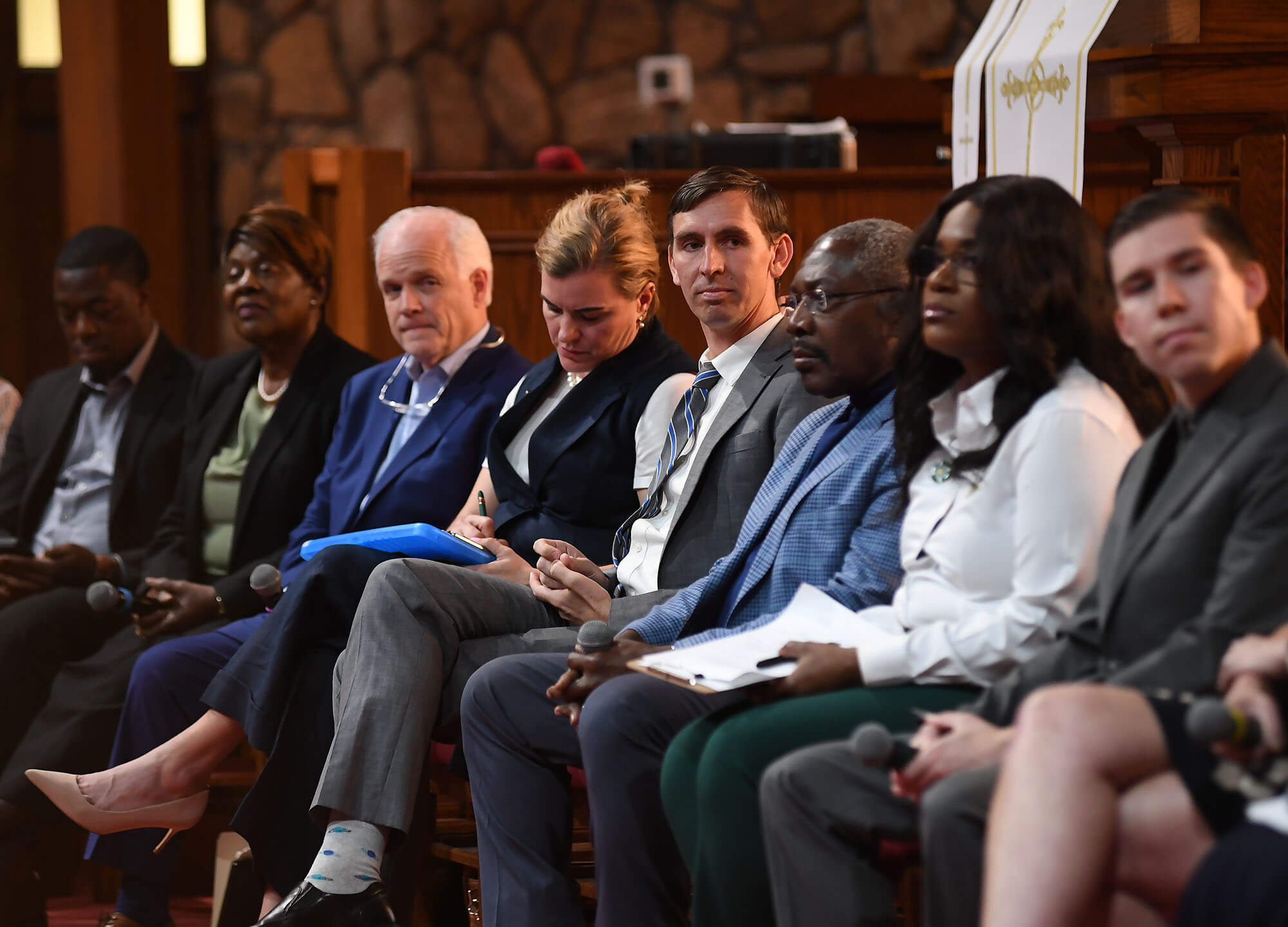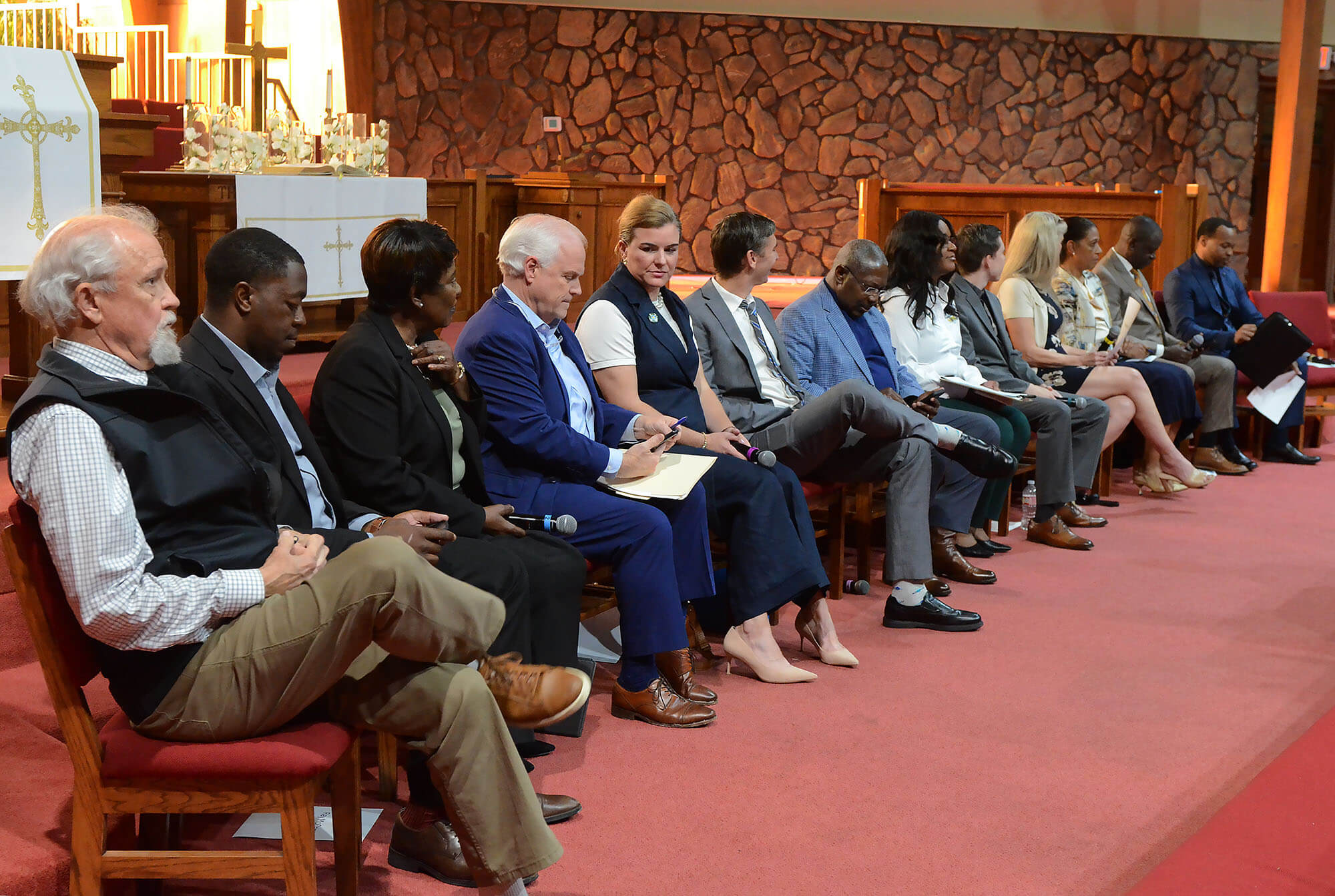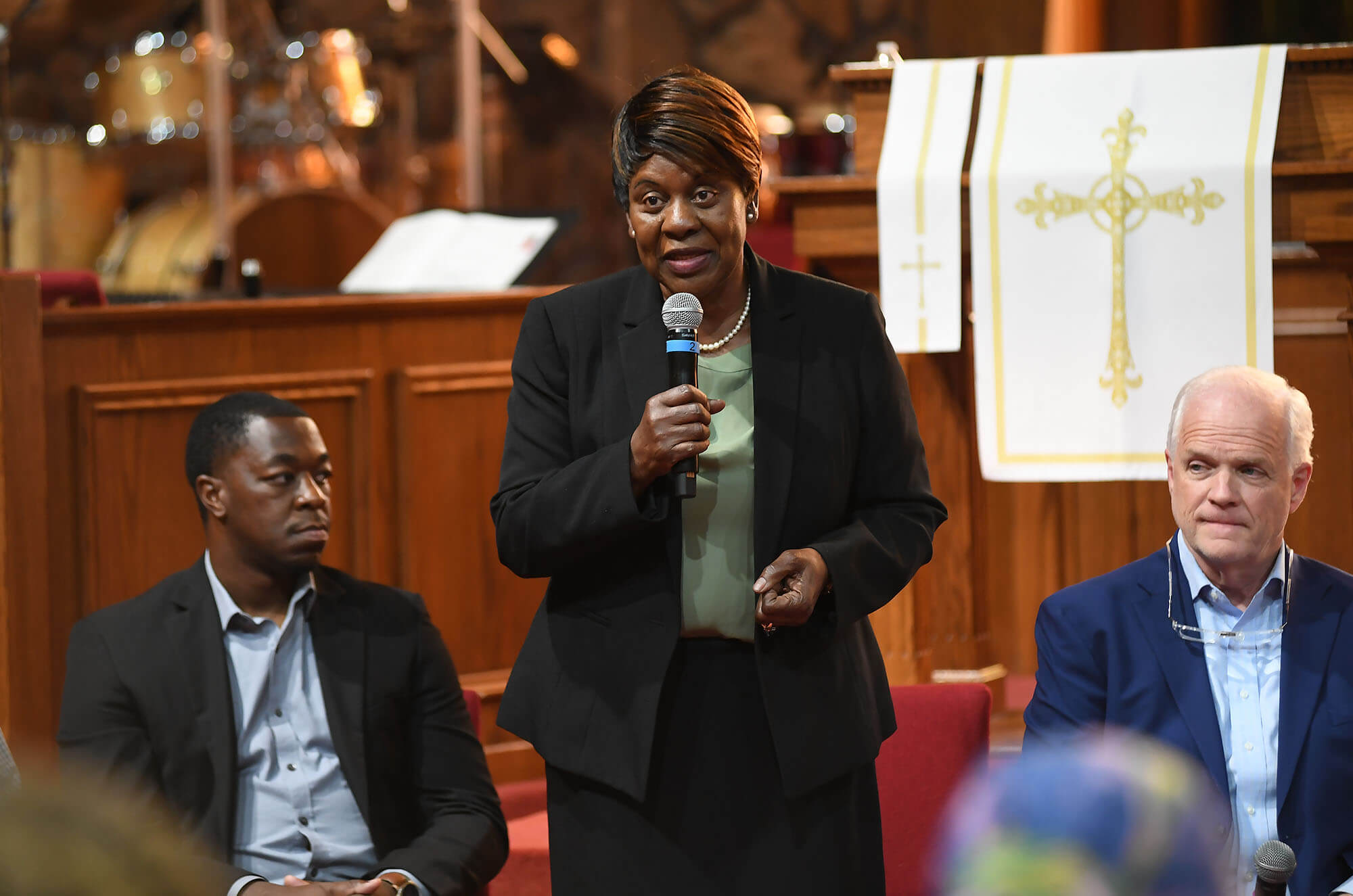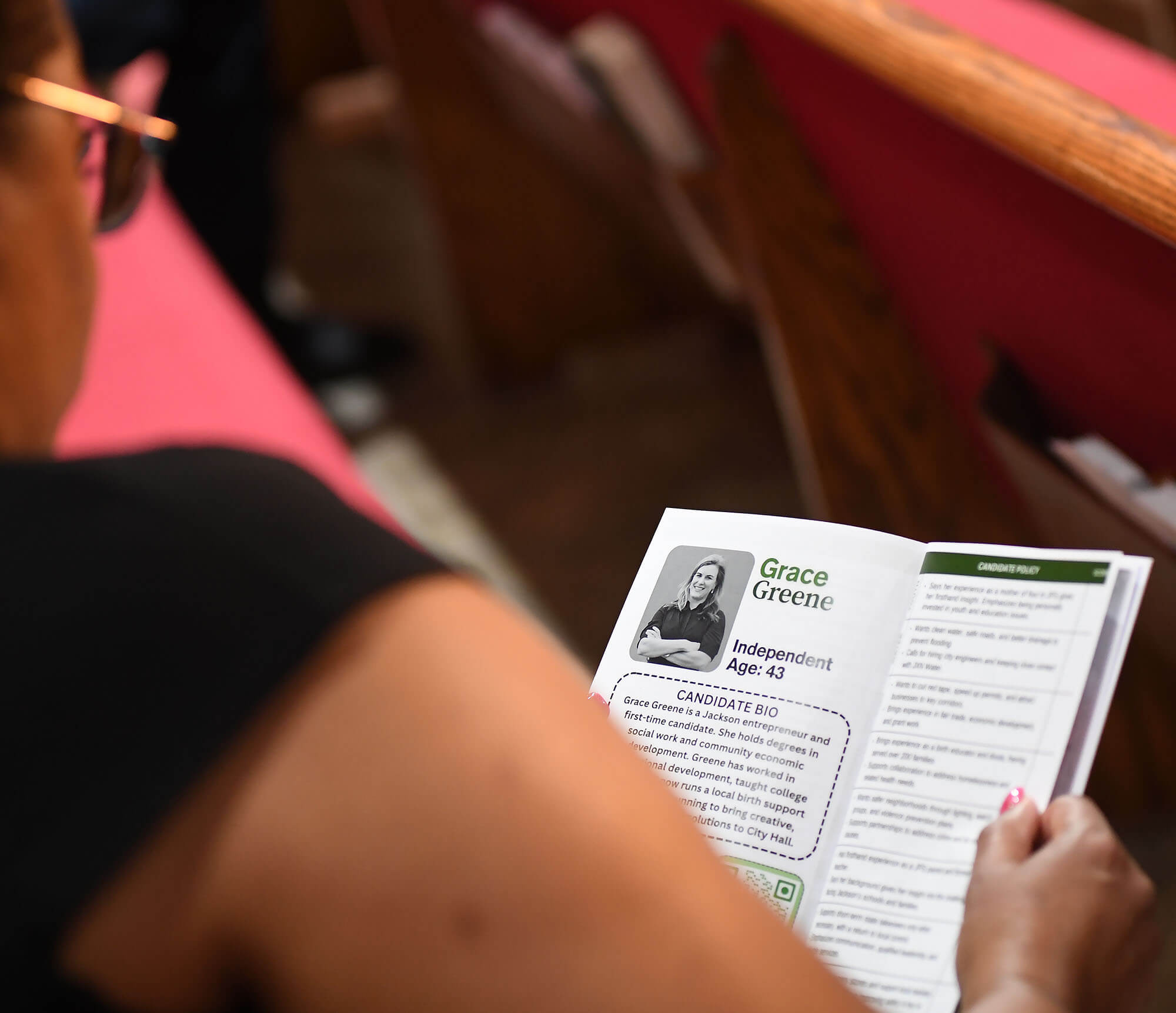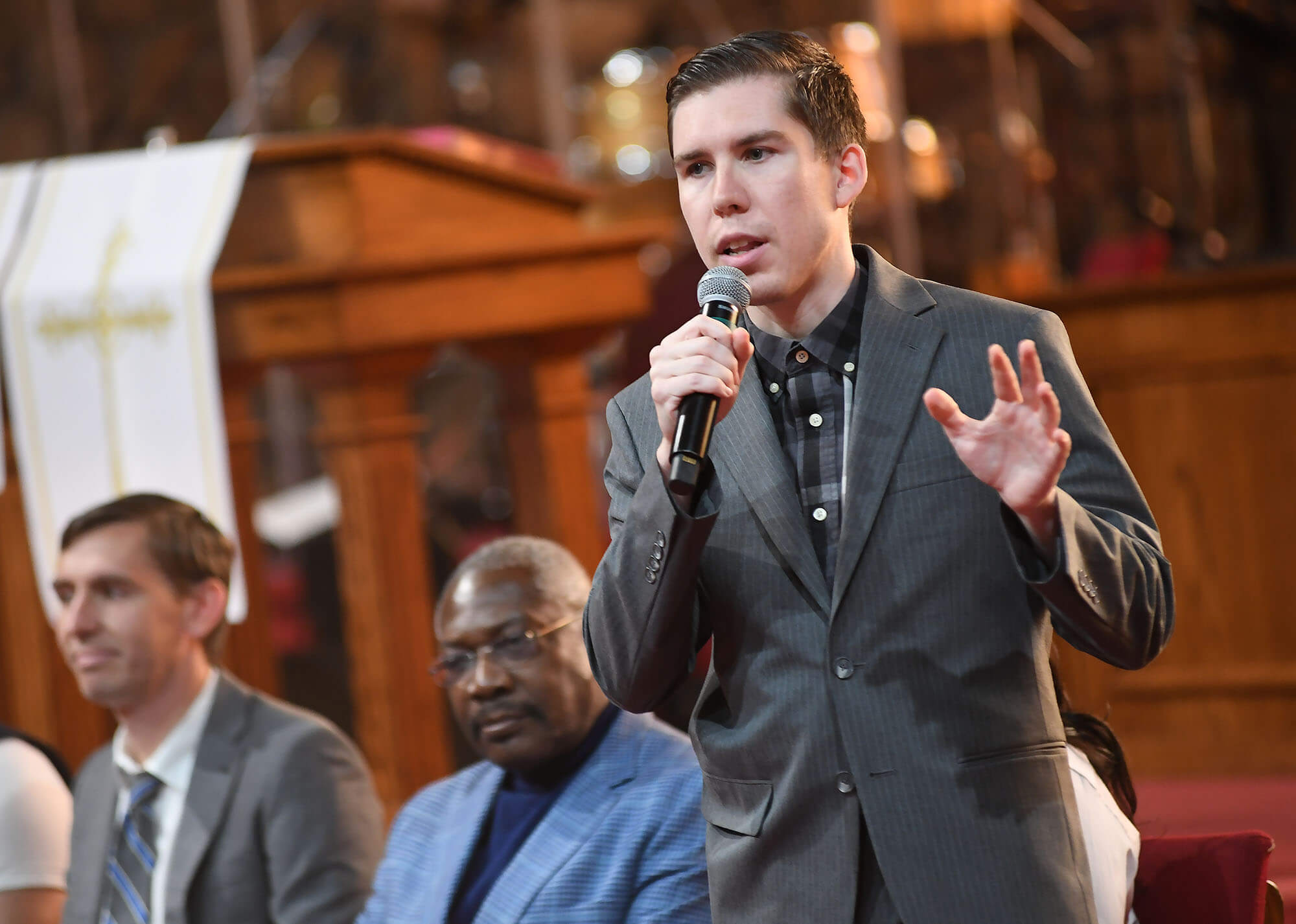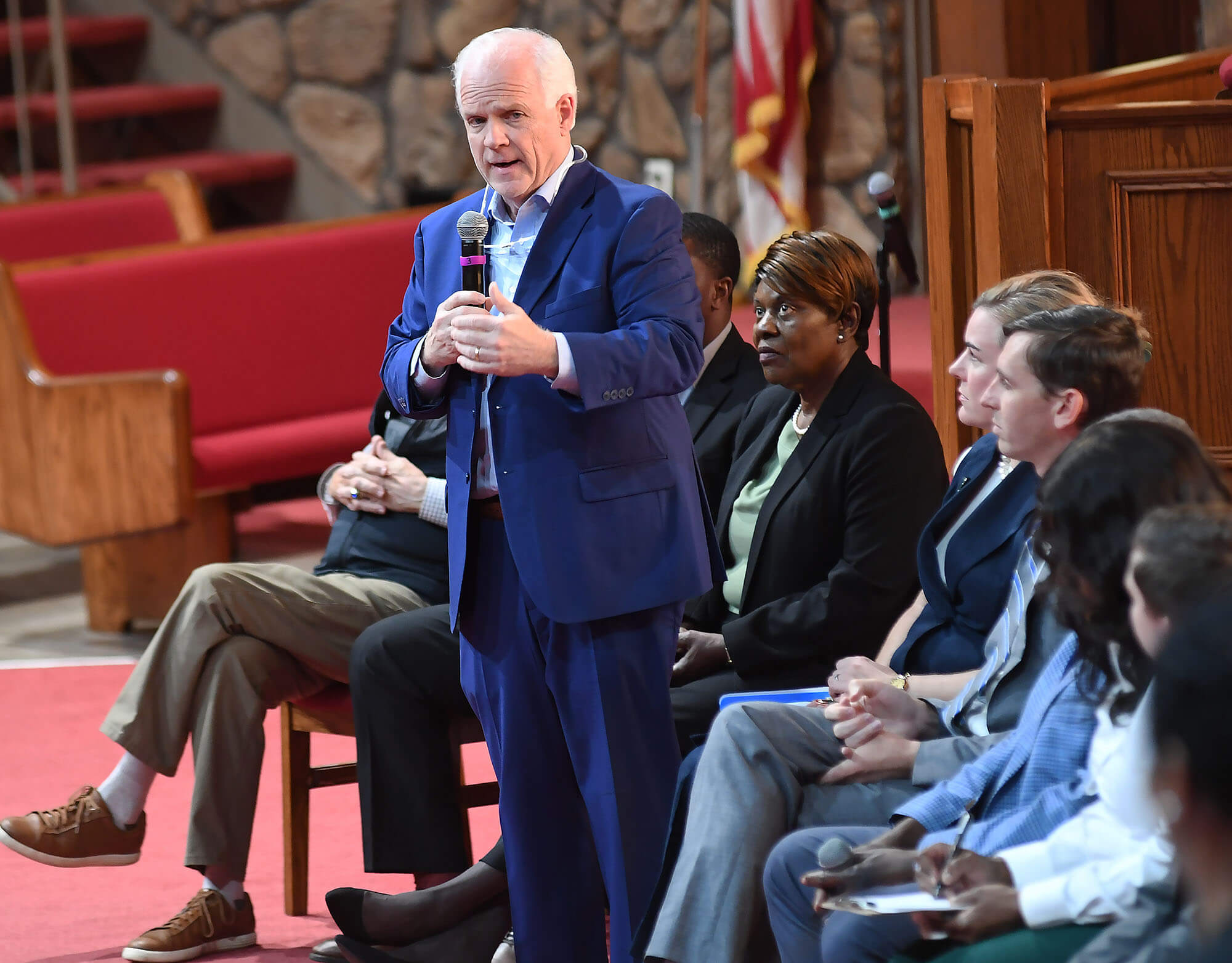

Out of six candidates on the mayoral ticket in Jackson’s June 3 general election, the one who takes home the most votes will be elected to office, even if he or she does not win a majority of the ballots cast.
That’s because unlike primary elections in Mississippi, local general elections generally do not feature runoffs. This fact might surprise some Jackson voters, since the race that typically generates the most excitement each election season – the Democratic primary for mayor – often results in a lively runoff between the top-two vote-getters.
“Everybody needs to be aware that Tuesday is the last call for drinks in municipal races,” said Brandon Jones, the director of political campaigns at the Southern Poverty Law Center. “If you’re planning on voting in a municipal election this cycle, this is your shot.”
In Mississippi primaries, when no candidate receives at least 50% plus one vote, the election advances a few weeks later to a runoff in which the two candidates who finished with the most votes go head-to-head. Mississippi does hold runoffs in general elections for statewide races – such as for governor – but not municipal.
In fact, runoffs are unusual in the United States, and especially rare in general elections. Mississippi is one of just seven states to require primary candidates to win a majority of the votes, according to the National Conference of State Legislatures. Even fewer states – including Georgia, Louisiana and Mississippi – hold runoffs for general elections, but in Mississippi, that requirement does not apply to municipal elections.
Most of the states requiring winners to secure a majority of votes are Southern due in part to Jim Crow, when white officials deployed runoffs to prevent Black candidates from winning, said Byron D’Andra Orey, a political science professor at Jackson State University.
“Whites would split the vote and African Americans might end up winning, so when they did the runoff, all of the whites came together who split the vote and they were able to defeat the Black candidate,” he said.
This Tuesday, Jackson voters will choose between the winners of the Democratic and Republican primaries – state Sen. John Horhn and police officer Kenny Gee, respectively – plus four independent candidates, businessman Rodney DePriest, musical artist Zach Servis, child care operator Lillie Stewart-Robinson and radio host Kim Wade. (Wade recently announced he was dropping out of the race but his name will still appear on the ballot).
With the ballot split six ways, it’s theoretically possible for one of these candidates to win by a plurality – the greatest number of votes – despite not securing over 50% of the vote.
But the chances of that hurting the Black Democratic candidate – which historically wins the mayor’s race in the majority Black city – are low, Orey said.
While he speculated that white Jacksonians may be motivated to vote for Hohrn’s white challengers, particularly DePriest, Orey said these voters likely won’t have the numbers to influence the election.
“In the past, it’s always been the case that it was just a landslide,” he said.
Jones said he’s seen a proliferation of independent candidates winning mayoral elections in the southeast, but that scenario depends on the unique politics and voting format of a city – and Jackson doesn’t quite have the conditions for a historic outcome like that.
“I just don’t know of a format for voting that is going to prevent John Horhn from getting elected mayor of Jackson,” Jones said. “When you win by a plurality, that would still require someone to have more votes.”
The only scenario in which Jones could see another candidate securing more votes and winning, he said, was if an independent candidate had a significant amount of Democratic support — and a Republican candidate was popular.
“That’s just not the case here,” Jones said.
Orey said he is curious to see how the lack of a runoff could impact the city’s council races, particularly the contested race in Ward 1, given that turnout among Black Jacksonians typically falls for the general.
“There’s so much racially polarized voting, and one could play with the idea that turnout is typically low and it’s low amongst Blacks,” he said. “But it could be low amongst whites, because when you’re in a majority jurisdiction, you tend to think of yourself as a permanent loser.”
- Mississippi Marketplace: data center ups and downs, alcohol shortages and new manufacturing projects - February 19, 2026
- More Mississippi students are graduating despite pandemic-era disruptions, new data shows - February 19, 2026
- Education advocates says Mississippi needs honest, nuanced school choice discussion - February 19, 2026
